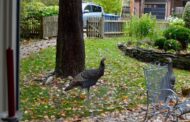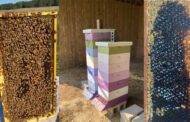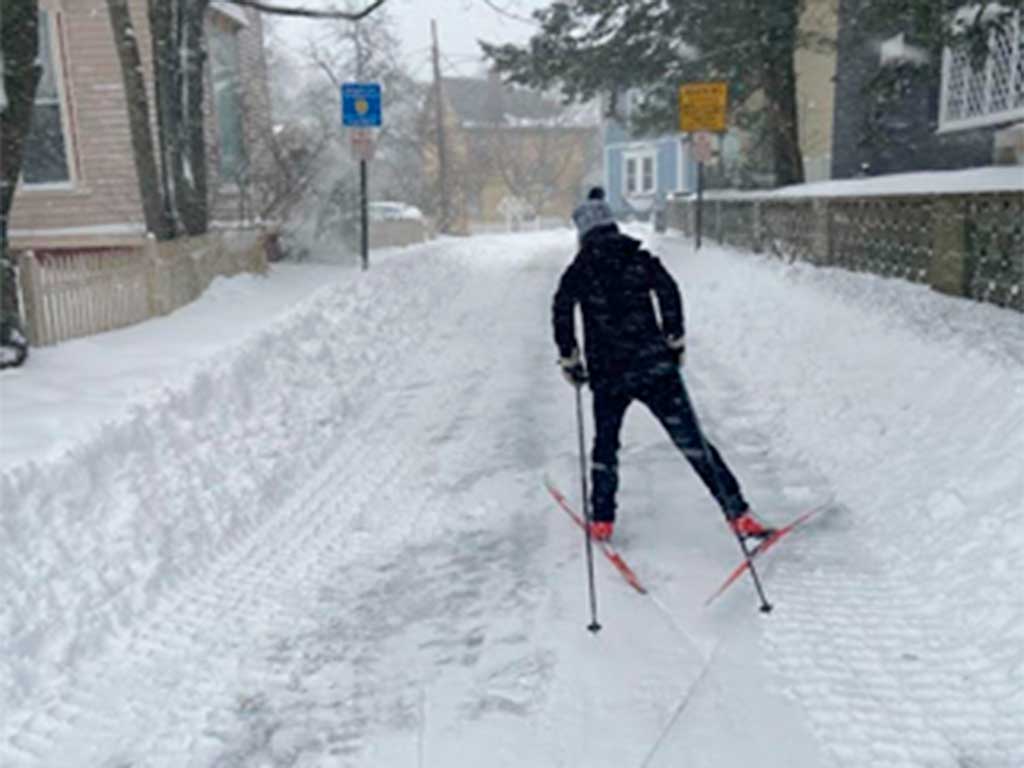
Curbside and neighborhood composting in Portland
By Marie Caspard
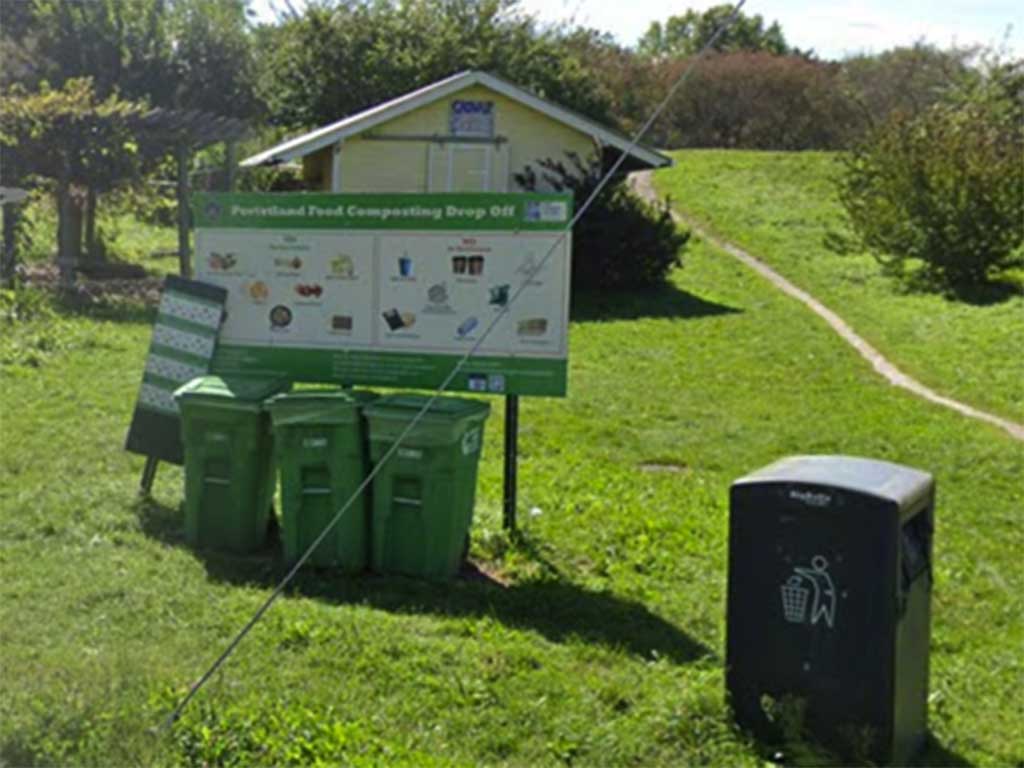
-Photo courtesy of Marie Caspard, PCAT
Where to start?
If starting your own compost bin sounds intimidating or physically not feasible, fear not! The City of Portland manages community drop-off sites at schools, community gardens, and other parks throughout the city where residents can drop off compostables on their own schedule, at no cost. Check out this map to find the nearest composting site near you.
The drop-off sites consist of signage providing composting guidelines and a set of green forty gallon bins managed by Garbage to Garden. This is a great option if you don’t create much food waste or aren’t ready to commit to a weekly service or home composting setup.
Residential Curbside Composting Service in Portland
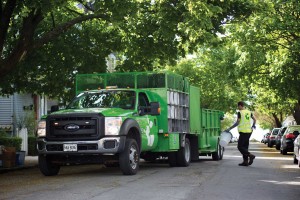
Garbage to Garden is also the primary residential curbside compost service provider in the city. You might have noticed the green buckets that pop up on curbsides alongside trash and recycling bins on trash day. Garbage to Garden provides customers a designated five-gallon green bucket. Each week, they pick up your full bucket and drop off a clean one.
For the green thumbs among us interested in the end product, Garbage to Garden also provides complimentary 2.5 gallon bags of compost when seasonally available. Garbage to Garden’s service fee in Portland is currently $19 per month, equivalent to the cost of one roll of city trash bags.1 The more residences that participate, the lower costs will be for each of us. Currently 23% of West End, East End, and East Bayside neighbors participate.2
Garbage to Garden also offers free service if you volunteer your time! Each month, Garbage to Garden offers opportunities to volunteer at an event where Garbage to Garden provides composting services, at a local non-profit event, or at the shop. This summer, for example, volunteers can get a free month of service in exchange for taking shifts monitoring compost bins and keeping the grounds tidy at the State Theater Concert Series at Thompson’s Point – and stick around for the concert! Talk about a sweet gig!
Check out Garbage To Garden’s Get Involved page to subscribe and/or email volunteer@garbagetogarden.org.
What to compost?
It is an unfortunate reality that your curbside compost bucket sometimes might get warm, wet, stinky, or buggy. Keep in mind, though, that if it doesn’t end up in your compost bin, it ends up in your trash. Some of this can also be alleviated by adding dry materials, like paper towels, napkins, or leaves and brush.
Industrial scale composting systems like Garbage to Garden’s windrow systems often accept more organic materials that you might not compost in an at-home system, like meat and bones, in addition to your typical vegetable scraps. Reach out to your composting service provider if you have questions about what materials can and cannot be composted. If you’re unable to contact your service provider and in doubt about tricky items like biodegradable tableware, avoid potential contamination by putting it in the trash.
Why compost?
Composting reintroduces circularity into our waste stream while reducing trash volume’s greenhouse gas emissions – in Portland’s case, incineration at ecoMaine. You might think that the food waste you produce won’t make much of a difference, but it does add up. According to a 2024 study commissioned by Maine DEP, residences in Cumberland County alone account for about 7% of all food waste generated in Maine – or 27,747 tons annually – presenting significant opportunities for waste reduction and diversion to composting.3
Portland and South Portland’s One Climate Future Plan estimates that the two cities dispose of over 8,000 tons of food waste per year,4 much of which is not currently diverted from our waste stream.
References
- City of Portland, ME. “Trash.” Portland, Maine, https://www.portlandmaine.gov/556/Trash. Accessed 19 August 2024.
- Garbage to Garden. “Community Resilience Program.” Garbage to Garden, https://garbagetogarden.org/community-resilience-program.php. Accessed 19 August 2024.
- Resource Recycling Systems (RRS), et al. “Food Loss and Waste Generation Study.” Maine DEP Waste Management Resources and Publications, Maine Department of Environmental Protection, 2024, https://www.maine.gov/dep/waste/publications/documents/ME%20DEP%20Food%20Loss%20and%20Waste%20Generation%20Study_RRS_4.1.29.pdf. Accessed 19 August 2024.
- City of Portland, and City of South Portland. “One Climate Future: Charting a Course for Portland and South Portland.” One Climate Future, 2020, https://www.oneclimatefuture.org/wp-content/uploads/2021/02/OneClimateFuture_FinalJan2021_Downsized.pdf. Accessed 19 August 2024.

